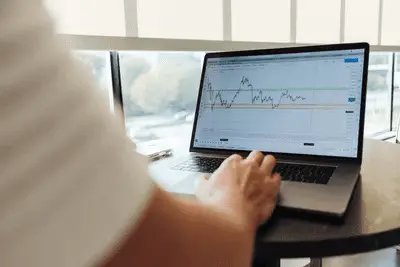
Decentralised autonomous organisations (also known as DAOs) are rapidly becoming more popular, and opinion is divided as to how important they will be in the future. Some think DAOs are a new trend likely to play an important role in our economic future. Others think they are inherently fragile and doomed to fail. Let’s take a look at what DAOs are, what their role is today, and what it may be in the future.
What Does DAO Mean?
DAO stands for “decentralised autonomous organisation,” and it is defined by those characteristics. Decentralised means there is no authority at the centre of the organisation that controls it. Instead, a community of users determines the direction of the DAO. This stands in contrast to traditional corporations, where the CEO and board have control over the management of the company. Autonomous refers to how the organisations use blockchain technology and smart contracts to make decisions and act autonomously.
DAOs have been created by developers to automate decisions and also to facilitate bitcoin exchange and cryptocurrency transactions.
How Do DAOs Operate?
DAOs have their operating rules written in computer code. Rather than having a complex web of social norms, legal contracts, unwritten rules, and hierarchies, they use smart contracts that run on a blockchain, most commonly Ethereum. These rules are then automatically implemented by smart contracts after being determined by the community.
Often, the initial rules of a DAO will be written by founders, but then updated as the community needs to shift. A common form of DAO is a financial organisation, such as an investment group. Work is spread among DAO members, and voting powers are often distributed by the ownership of a DAO token.
DAOs make money from donations, receiving funds from members, and from return on assets. These funds can be used for all kinds of things, including incentivising certain behaviours such as inviting new members.
What Are The Differences From a Traditional Organisation?
DAOs differ significantly from traditional organisations. So much so that it is difficult for most people to understand how DAOs can operate and what their benefits are. Let’s take a look at the most important differences.
Organisational Structure
Most traditional organisations rely on hierarchy to organise members. This is efficient in the absence of technology to automate decisions, manage funds, and enforce compliance with the organisation’s rules. For example, if you join an investment organisation, you’ll have to hand your funds over to the fund manager and trust that they’ll protect your interests.
DAOs, in contrast, have no hierarchy. Instead, their operations are determined by code that all members agree upon. If you were to invest in a DAO investment organisation, you wouldn’t need to hand your funds over to a manager. Instead, you send them to a smart contract operated by the DAO. They will be used according to the rules. There is no owner who can take advantage.
Decision-Making Process
In most traditional organisations, it’s the leaders at the top who dictate the most important decisions — the CEO, the president, the party leader, etc. Those with a vested interest in the organisation need to hope the leaders are competent and trustworthy. Decision-making processes are often opaque, and only a select few parties have any real leverage.
With DAOs, decisions are either made automatically or by a vote. Those that have a stake in the organisation by buying the DAO token can have a say in the decisions. The more tokens, the more your vote counts. This makes DAOs democratic, but also vulnerable to domination by whales who own most of the tokens and act in their own interest. The DAO needs to ensure that tokens are distributed widely.
Transparency
Transparency is one of the biggest strengths of DAOs compared to other organisations. Everything from voting outcomes to where funds are directed happens on a blockchain and can be viewed and audited by anyone. This makes DAOs some of the only completely transparent organisations in the world and gives members a high level of trust in their currency and future operations.
Traditional organisations, like corporations, governments, and banks, cannot operate anywhere near that level of transparency and instead carry out most of their operations privately. A lack of transparency causes all sorts of problems, including corruption.
Intermediary Involvement
DAOs process their operations using blockchain technology and therefore have access to the intermediary-killing benefits of blockchain. Intermediaries are people who facilitate the logistics of some transactions, usually for a fee. They are often necessary for trust, security, or logistical reasons. However, blockchain automates the tasks that these intermediaries perform and removes the need for many of them altogether.
Financial and governance matters are resolved automatically in predetermined ways, almost for free, on the blockchain. This means DAOs have the potential to be hyper-efficient compared to traditional organisations that require hordes of bankers, lawyers, and other expensive third parties to mediate their operations.
What Is the Role of DAOs Today?
DAOs are an incredible new opportunity for communities on the internet. They are a new vehicle to organise people around the world who have never met — and may never meet. They leverage blockchain technology to automate and codify their manifestos and rules of operation into smart contracts.
DAOs unite people to develop projects in ways that were never possible before. Individuals with an entrepreneurial spirit propose new ideas for the protocol to secure funding, and community members can be incentivised to bring in new members. At the same time, DAOs have limitations and vulnerabilities, such as the risk of being hacked or dominated by a small number of token holders
Decentralised autonomous organisations are an extremely promising application of blockchain technology. More investigation is needed to know exactly how important they will be to our future economy.